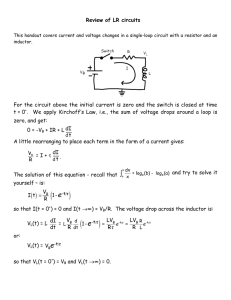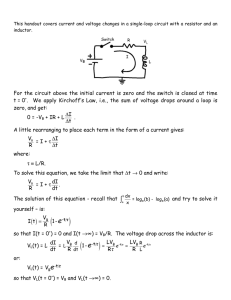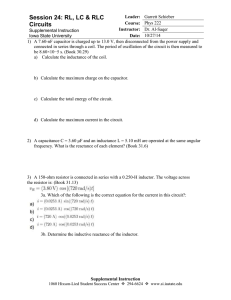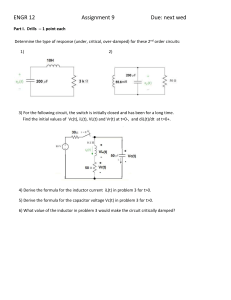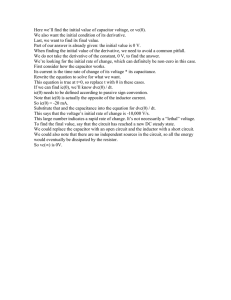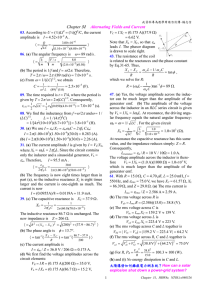PHYS 222 Worksheet 23 AC Circuits ANSWERS
advertisement
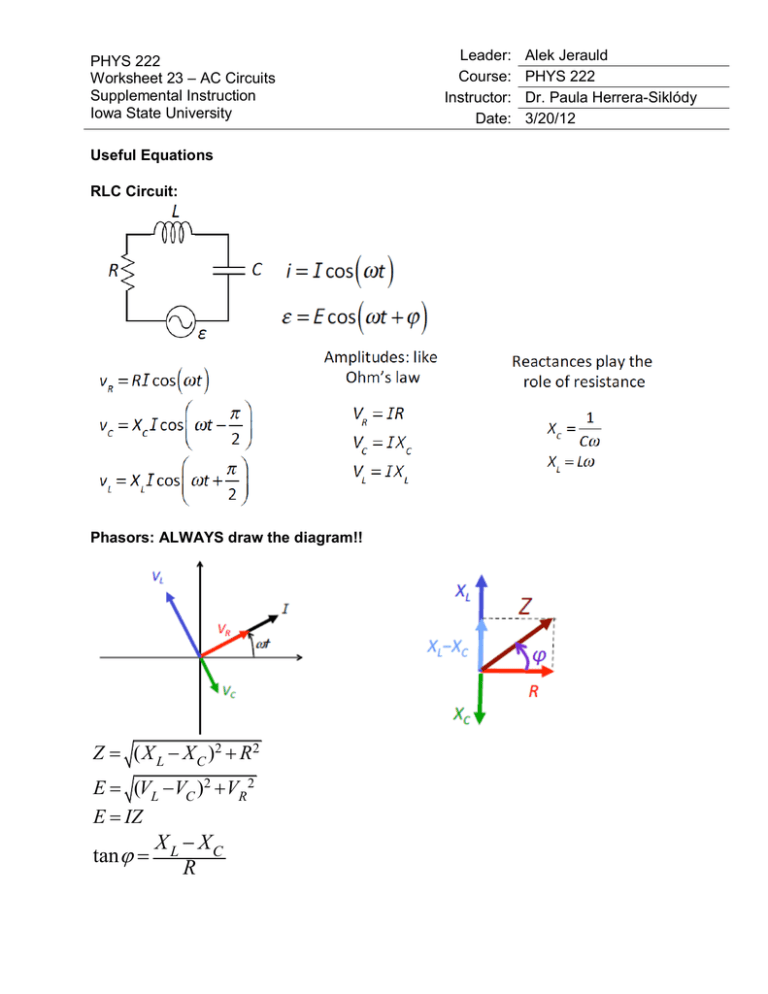
PHYS 222 Worksheet 23 – AC Circuits Supplemental Instruction Iowa State University Useful Equations RLC Circuit: Phasors: ALWAYS draw the diagram!! Z ( X L X C )2 R 2 E (VL VC )2 VR 2 E IZ tan X L XC R Leader: Course: Instructor: Date: Alek Jerauld PHYS 222 Dr. Paula Herrera-Siklódy 3/20/12 Related Problems 1) A capacitance C = 3.60 μF and an inductance L = 5.10 mH are operated at the same angular frequency. What is the reactance of each element? (Book 31.6) 1 LC X L L XC 1 L L 37.6 C LC 1 C 1 L 37.6 1 C C LC 2) A 150-ohm resistor is connected in series with a 0.250-H inductor. The voltage across the resistor is: (Book 31.13) (a) Which of the following is the correct equation for the current in this circuit?: a) b) c) d) I E Z Z R 2 ( X L X C ) 2 R 2 X L 2 R 2 L I E R 2 L 2 2 0.0253 A i 0.0253cos 720t (b) Determine the inductive reactance of the inductor. X L L 180 3) You have a 210-ohm resistor and a 0.410-H inductor. Suppose you take the resistor and inductor and make a series circuit with a voltage source that has a voltage amplitude of 31.0 V and an angular frequency of 260 rad/s. (Book 31.14) (a) What is the impedance of the circuit? Z R 2 X L X C R 2 L 236 2 (b) what is the current amplitude? E I 0.132 A Z 2 (c) What is the voltage amplitude across the resistor? VR IR 27.6 V (d) What is the voltage amplitudes across the inductor? VL IX L 14.0 V (e) Does the source voltage lag or lead the current? X tan 1 L 26.9 R Phase angle is positive, so voltage source is LEADING the current. (f) Draw the phasor diagram 4) You have a 201 -ohm resistor, a 0.401 H inductor, a 5.00 -μF capacitor, and a variablefrequency ac source with an amplitude of 3.01 V. You connect all four elements together to form a series circuit. (Book 31.21) (a) At what frequency will the current in the circuit be greatest? Current is greatest when Z is smallest. Z is smallest when Z = R or XL = XC: Z R X L XC L 1 C 1 706 rad / s LC (b) What will be the current amplitude at this frequency? E Z R I 0.015 A R (c) What will be the current amplitude at an angular frequency of 401 rad/s? E E I 0.00765 A Z 1 2 R L C (d) At this frequency, will the source voltage lead or lag the current? 1 L C 1 tan 59 Phase angle is negative, so Voltage source is Lagging Current R
